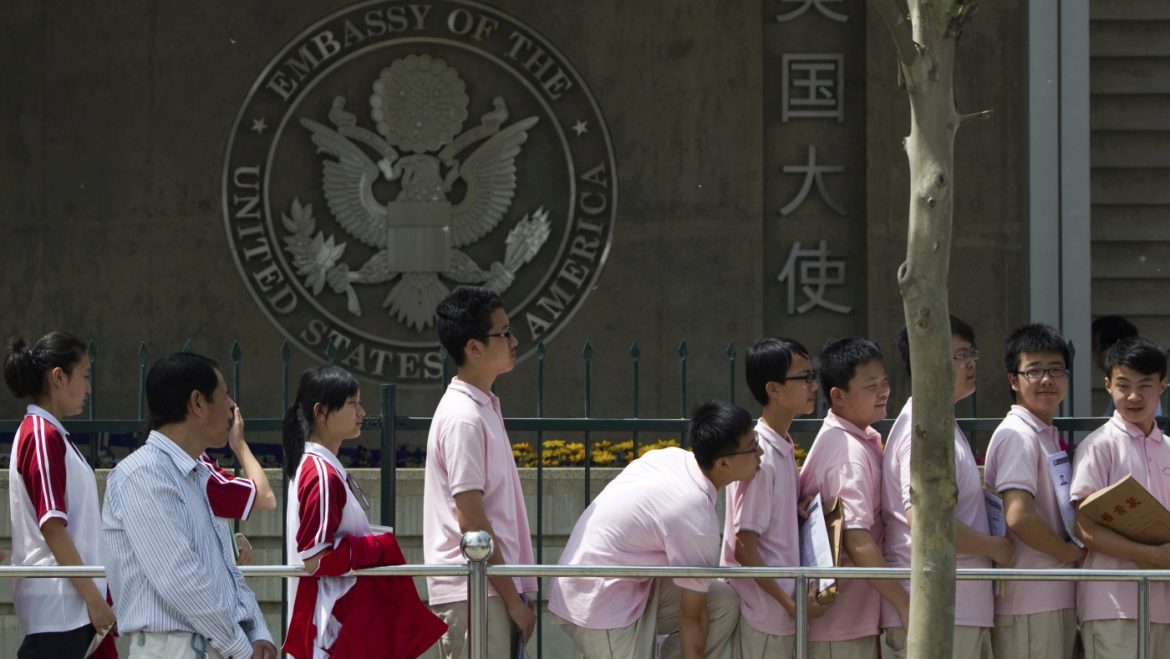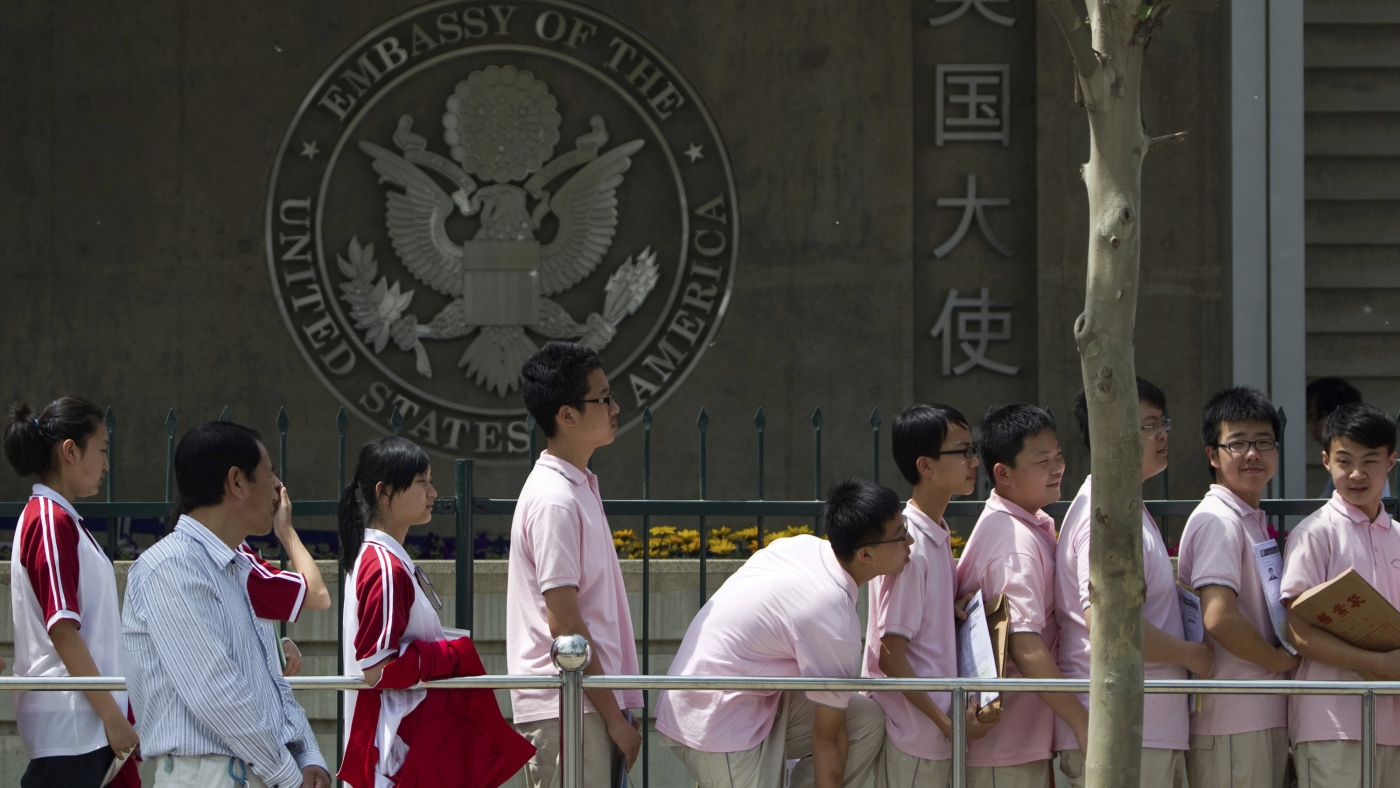The recent announcement by the U.S. State Department to resume processing student visa applications for foreign students comes hand-in-hand with a significant new requirement: applicants must now provide access to their social media accounts by setting them to “public” for government review. This policy shift marks a notable intensification of vetting protocols, invoking a wide spectrum of implications spanning immigration policy, individual privacy rights, and international education dynamics.
Background and Scope of the Policy Change
After suspending student visa processing in May, the U.S. has now officially lifted the moratorium but attached an additional layer of scrutiny. According to official notices, all prospective foreign students applying for U.S. visas are mandated to unlock their social media profiles for consular officers’ inspection. Failure to comply with this demand may serve as grounds for visa denial, as refusal is explicitly indicated to raise suspicions about the applicant’s intent or affiliations.
This enhanced vetting process targets social media accounts including but not limited to Facebook, Twitter, Instagram, TikTok, and LinkedIn. The department has indicated that the goal is to screen for content or behavior suggestive of hostility toward U.S. citizens, culture, or fundamental founding principles. This measure reflects heightened national security concerns and aligns with prior efforts under recent administrations to tighten immigration oversight.
Implications for International Students and the Education Sector
Access and Privacy Concerns
For international students, social media has long been a critical avenue for personal expression, networking, and cultural exchange. Requiring applicants to expose their digital footprints to government scrutiny raises inevitable privacy issues. Many applicants may have contents on their social profiles that, while innocuous or contextual, could be misconstrued without proper cultural or contextual understanding by consular officers. This demand also touches on the delicate balance between national security and individual rights, especially as it entails a form of digital surveillance before granting entry.
Furthermore, concerns arise about the potential chilling effect on free speech and the ability for students to engage openly on digital platforms if every tweet or post risks visa rejection. This new obligation might compel applicants to sanitize or manipulate their social media presence, thereby undermining authentic self-representation.
Impact on Student Mobility and University Diversity
The U.S. has historically been a magnet for international students, who contribute significantly to the diversity and intellectual dynamism of its campuses. This new scrutiny requirement could deter some applicants from countries with stricter social media cultures or from communities wary of surveillance. Reports indicate that students from countries such as China, India, Mexico, and the Philippines—origin countries with some of the highest student visa application volumes—are closely watching visa appointment openings and the terms of these new requirements.
By instituting heightened vetting primarily on social media, the policy may shift the demographic patterns of international student flows. Applicants from countries with sensitive political climates or those concerned about privacy infringements might seek alternative destinations perceived as less intrusive.
Government Rationale and Security Priorities
The U.S. State Department defends the measure as necessary to identify potential security risks. By examining social media presence, consular officers aim to uncover “indications of hostility” that may not emerge through traditional background checks or interviews. The approach theoretically allows for a fuller, more nuanced evaluation of an applicant’s ideologies, associations, and past behaviors.
Heightened social media vetting represents an evolution in visa protocols designed to address contemporary challenges in global security environments—including the complexities of radicalization, misinformation, and influence operations propagated through digital spaces.
Critical Considerations and Risks
– Subjectivity and Bias: The interpretation of social media content can be highly subjective, especially across cultural and linguistic divides. There is a risk that benign expressions or cultural idioms might be misinterpreted as hostile or inappropriate, possibly leading to unfair denials.
– Transparency and Accountability: Visa applicants may face challenges in understanding specific reasons for rejection related to social media content, which raises questions about transparency and avenues for appeal.
– Deterrence vs. Inclusion: While national security is a legitimate government interest, excessive procedural barriers can dampen the U.S.’s appeal as a welcoming academic destination, thereby impacting university funding, research advances, and cultural exchange.
– Privacy Rights: This demand brings to light the tension between a government’s right to secure its borders and the individual’s right to digital privacy. It highlights the evolving legal and ethical landscape governing access to personal online data in immigration contexts.
Conclusion: Navigating a New Era for International Academic Engagement
The resumption of student visa processing coupled with mandatory social media disclosure signals a pivotal shift in how the U.S. balances security priorities with its longstanding role as a global hub for education. While this approach could enhance protections and vet out malign intentions, it also introduces significant complexities around privacy, fairness, and the potential deterrent effect on valuable international students.
Universities, policymakers, and prospective students alike are now navigating a more intricate admission landscape, one where digital footprints carry as much weight as academic credentials. The full implications of this policy change will unfold over time, potentially reshaping the terrain of U.S. international education and raising fundamental questions about surveillance, trust, and openness in a digitally connected world.


